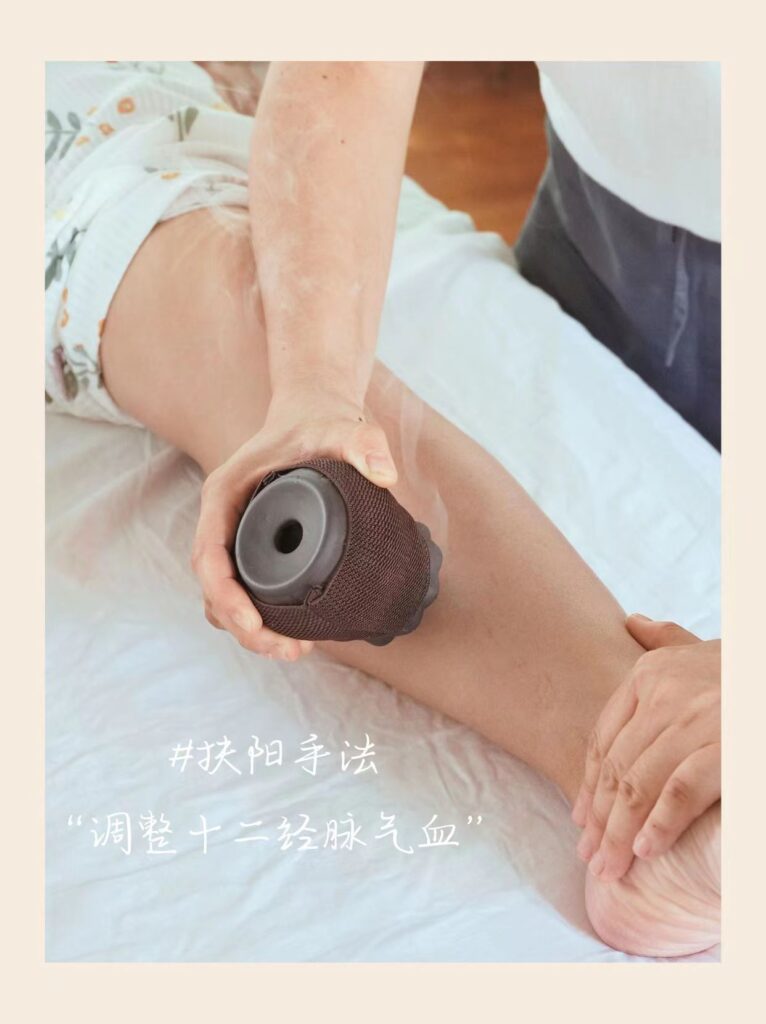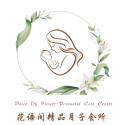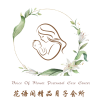Congratulations on your new addition to the family! The postnatal period is a time of joy and excitement, but it can also be physically and emotionally challenging. As a new mom, taking care of yourself may not be at the top of your priority list, but it’s essential for your recovery and overall well-being. In this article, we will guide you on your postnatal journey, focusing on how to prioritize self-care and healing.
During this transformative time, it’s crucial to give yourself permission to slow down, rest, and heal. From physical changes to hormonal shifts, your body needs time to recover from pregnancy and childbirth. Prioritizing self-care will not only support your healing process but also help you navigate the demands of motherhood with more ease and confidence.
We’ll explore various self-care practices and techniques that can aid in your postnatal recovery. From nourishing your body with wholesome foods to incorporating gentle exercises, we’ll provide practical tips to support your journey. Additionally, we’ll discuss the importance of emotional well-being and provide strategies to manage the rollercoaster of emotions that often accompany the postnatal period.
Join us as we delve into your postnatal recovery journey and empower you with the tools and knowledge to prioritize self-care and healing.
Understanding postnatal recovery
The postnatal recovery period refers to the time after childbirth when your body undergoes significant changes as it heals and adjusts to no longer carrying a baby. It is important to understand that this is a unique journey for every woman, and the length of time it takes to fully recover can vary. While it may be tempting to rush through this phase and quickly resume your normal routine, it is crucial to listen to your body and give it the time and care it needs to heal properly.
During this period, your body will experience physical changes such as uterine contractions, vaginal bleeding (lochia), breast engorgement, and possible perineal soreness if you had a vaginal delivery. Your hormones will also go through fluctuations, which can contribute to mood swings, fatigue, and other emotional changes. Understanding these changes and being prepared for them can help you navigate this phase with more ease and confidence.
TCM Postnatal Wellness Therapies:
* Abdomen Meridian Adjustment:
Experience effective postnatal recovery as we address visceral prolapse and abdominal wall separation through kidney, stomach, spleen, liver meridian adjustments, and more, with abdominal deep fascia manipulation and breath restoration.
* Uterine & Visceral Wellness Therapy
Combination of Various TCM postnatal recovery techniques to stimulate important acupuncture points to promote the flow of Qi and Blood, regulate the meridians to strengthen the spleen and stomach function, balance the yin and yang of internal body organs, and restore visceral prolapse and hormones balance.
* Moxibustion Therapy
Moxibustion is the burning of mugwort leaves to generate heat and energy that penetrates the meridians to enhance the body’s yang elements to dispel dampness from the body, restore vitality, and improve harmonies of yin and yang elements within the body.


The importance of self-care after childbirth
As a new mom, it’s easy to prioritize your baby’s needs above your own. While caring for your little one is important, neglecting your own needs can have a negative impact on your physical and mental well-being. Self-care after childbirth is not just a luxury but a necessity. By taking care of yourself, you are better equipped to care for your baby and enjoy the journey of motherhood.
One of the key reasons why self-care is vital during the postnatal period is that it supports your physical healing. Your body has just gone through a tremendous process of pregnancy and childbirth, and it needs time to recover. Engaging in self-care activities such as rest, nourishing your body with healthy foods, and practicing gentle exercises can aid in the healing process. Additionally, self-care helps to alleviate common postpartum discomforts such as fatigue, muscle soreness, and mood swings.
Physical healing after childbirth
Physical healing is an integral part of the postnatal recovery journey. Your body needs time to heal from the strain and changes it has undergone during pregnancy and childbirth. While the healing process is unique to each woman, there are several general guidelines that can aid in your physical recovery.
Rest is crucial during the early weeks after childbirth. Your body needs time to heal, and getting sufficient sleep and rest can support this process. It’s important to listen to your body and take naps when you feel tired. Don’t hesitate to ask for help from your partner, family, or friends to allow yourself the time to rest and recover.
In addition to rest, nourishing your body with wholesome foods can contribute to your physical healing. Focus on consuming a balanced diet that includes plenty of fruits, vegetables, whole grains, lean proteins, and healthy fats. These nutrients provide the fuel your body needs to repair tissues and maintain overall well-being. Staying hydrated is also essential, especially if you are breastfeeding.
Gentle exercises can be beneficial for your physical recovery, but it’s important to consult with your healthcare provider before starting any exercise regimen. Walking, pelvic floor exercises, and gentle stretching can help strengthen your muscles and promote healing. However, it’s crucial to avoid high-impact activities or strenuous workouts during the early weeks postpartum.
Emotional and mental well-being during postnatal recovery
The postnatal period is not only a time of physical healing but also an emotional and mental adjustment. Many new moms experience a range of emotions during this time, including joy, anxiety, sadness, and overwhelm. It’s important to prioritize your emotional well-being and seek support when needed.
One of the most effective ways to support your emotional and mental well-being is by building a strong support system. Surround yourself with loved ones who can offer emotional support, practical assistance, and a listening ear. Joining a new mom’s support group or seeking professional counseling can also provide valuable guidance and a safe space to express your feelings and concerns.
Practicing self-compassion is another crucial aspect of emotional well-being during postnatal recovery. It’s normal to feel overwhelmed or inadequate at times, but remember that you are doing your best. Be kind to yourself and acknowledge the challenges you are facing. Celebrate small victories and focus on the progress you are making, even if it may feel slow at times.
Self-care practices for postnatal recovery
Self-care is not a one-size-fits-all concept. It encompasses a wide range of practices and activities that support your physical, emotional, and mental well-being. Here are some self-care practices that can aid in your postnatal recovery:
1. Rest: Prioritize getting enough sleep and taking regular breaks throughout the day to rest and recharge.
2. Nourishing meals: Focus on consuming nutrient-dense foods that support your healing process. Include a variety of fruits, vegetables, whole grains, lean proteins, and healthy fats in your diet.
3. Hydration: Drink plenty of water to keep yourself hydrated, especially if you are breastfeeding.
4. Gentle exercises: Engage in low-impact exercises such as walking, yoga, or swimming, once you have received clearance from your healthcare provider.
5. Emotional support: Seek out emotional support from loved ones, join support groups, or consider professional counseling if needed.
6. Time for yourself: Carve out moments in your day for activities that bring you joy and help you relax. This can be as simple as reading a book, taking a bath, or practicing mindfulness.
Remember that self-care is not selfish but necessary for your well-being. By prioritizing self-care, you are setting a positive example for your child and ensuring that you can show up as the best version of yourself.
Nutrition and hydration during the postpartum period
Nutrition plays a crucial role in postnatal recovery. Your body needs adequate nutrients to heal, produce breast milk if you are breastfeeding, and maintain energy levels. Here are some tips for nourishing your body during the postpartum period:
1. Focus on whole foods: Choose whole, unprocessed foods whenever possible. These include fruits, vegetables, whole grains, lean proteins, and healthy fats.
2. Prioritize protein: Protein is essential for tissue repair and recovery. Include sources such as lean meats, poultry, fish, eggs, legumes, and dairy products in your meals.
3. Stay hydrated: Drinking enough water is important for overall health and milk production if you are breastfeeding. Aim for at least eight glasses of water per day, and listen to your body’s thirst cues.
4. Include healthy fats: Healthy fats, such as those found in avocados, nuts, seeds, and olive oil, provide essential nutrients and support hormone production.
5. Don’t skip meals: It can be easy to forget or neglect meals in the midst of caring for a newborn. However, regular meals provide the energy and nutrients your body needs. Prepare nutritious snacks and have them readily available for quick and easy nourishment.
Remember, proper nutrition is not about strict diets or perfection. It’s about nourishing your body and giving it the nutrients it needs to heal and thrive during this important phase.
Creating a support system for postnatal recovery
Building a support system is crucial during the postnatal period. Having a network of people who can offer emotional support, practical assistance, and guidance can make a significant difference in your recovery journey. Here are some tips for creating a support system:
1. Reach out to loved ones: Share your thoughts, feelings, and challenges with your partner, family members, and close friends. Let them know how they can support you during this time.
2. Join support groups: Seek out local or online support groups for new moms. Connecting with other women who are going through similar experiences can provide a sense of community and understanding.
3. Consider professional help: If you are struggling with your mental health or finding it difficult to cope, don’t hesitate to seek professional help. A healthcare provider or therapist can offer guidance and support tailored to your needs.
4. Delegate tasks: Don’t be afraid to ask for help with household chores, cooking, or caring for your baby. Accepting support allows you to focus on your recovery and well-being.
Remember that it’s okay to ask for help and lean on others during this time. Building a support system not only benefits you but also strengthens the bonds with your loved ones.
Exercise and physical activity after childbirth
Engaging in regular physical activity after childbirth can have numerous benefits for your physical and mental well-being. However, it’s important to proceed with caution and consult your healthcare provider before starting any exercise routine. Here are some considerations for exercising postpartum:
1. Start slowly: Begin with gentle exercises such as walking or pelvic floor exercises. Gradually increase the intensity and duration as your body gets stronger.
2. Focus on core and pelvic floor exercises: Pregnancy and childbirth put a strain on these muscles. Strengthening your core and pelvic floor can help prevent long-term issues such as urinary incontinence and diastasis recti.
3. Listen to your body: Pay attention to any discomfort or pain during exercise. If something doesn’t feel right, modify or stop the activity. Your body is still healing, and pushing yourself too hard can hinder the recovery process.
4. Incorporate variety: Mix up your workouts to keep things interesting and target different muscle groups. This can include yoga, swimming, strength training, or aerobic exercises.
5. Be patient: Remember that postpartum recovery is a gradual process. Don’t compare yourself to others or expect immediate results. Focus on progress, no matter how small, and celebrate your achievements along the way.
Seeking professional help for postnatal recovery
If you are experiencing difficulties during your postnatal recovery, it’s important to seek professional help. Your healthcare provider can offer guidance, support, and resources tailored to your specific needs. Here are some signs that indicate you may benefit from professional assistance:
1. Persistent feelings of sadness, anxiety, or depression
2. Difficulty bonding with your baby
3. Extreme mood swings or irritability
4. Difficulty sleeping or changes in appetite
5. Thoughts of self-harm or harm to your baby
Remember that seeking help is a sign of strength, not weakness. Your mental and emotional well-being are just as important as your physical recovery, and there are professionals available who can provide the support you need.
Conclusion and the ongoing importance of self-care in motherhood
As you embark on your postnatal recovery journey, remember to prioritize self-care and healing. Taking care of yourself is not selfish but necessary for your well-being and the well-being of your baby. By giving yourself permission to rest, nourish your body, seek support, and engage in self-care practices, you are setting a strong foundation for your ongoing journey in motherhood.
While the postnatal recovery period may have its challenges, remember that it is temporary and that you have the strength and resilience to navigate it. Celebrate your progress, no matter how small, and be patient with yourself. Your recovery journey is unique, and it’s important to listen to your body and honor your needs.
As you continue your motherhood journey, remember that self-care is an ongoing practice. It’s not something that ends after the postnatal period but rather evolves as your child grows. Prioritizing self-care allows you to show up as the best version of yourself for both yourself and your loved ones.
Embrace this transformative time, take care of yourself, and trust in your ability to navigate the challenges and joys of motherhood. You are stronger than you realize, and with self-care and healing, you can thrive on this beautiful journey.


